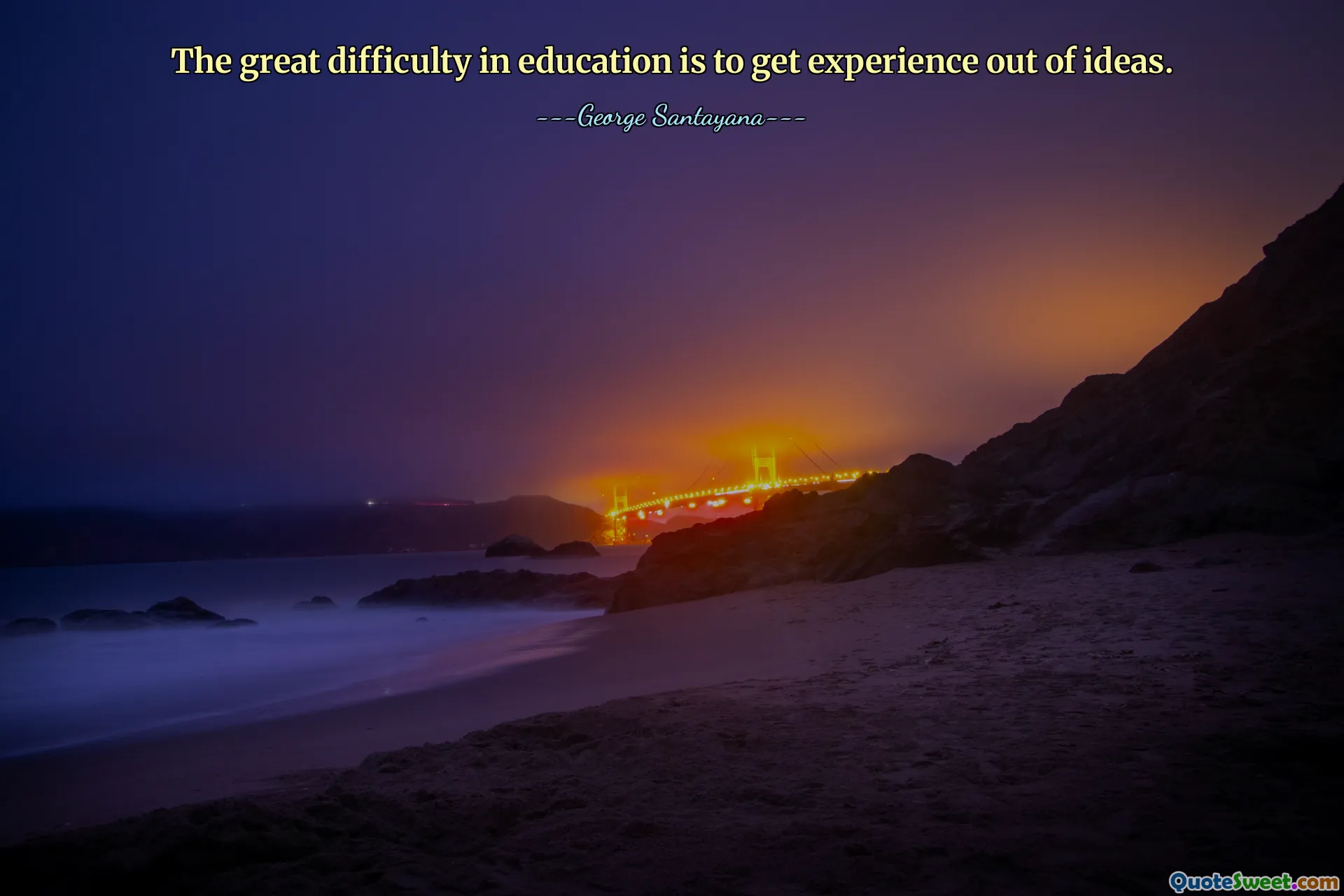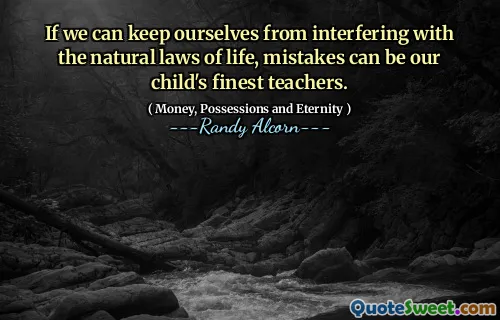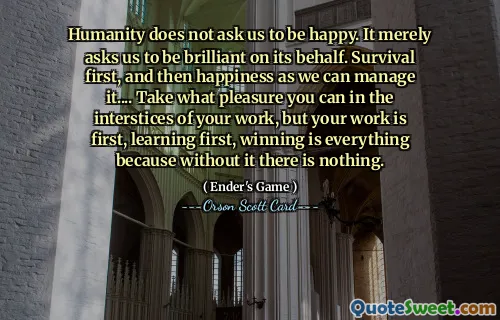
The great difficulty in education is to get experience out of ideas.
Engaging with ideas is fundamental in the educational process, yet transforming these ideas into tangible experience remains a significant challenge. This quote highlights the vital bridge between understanding concepts and applying them practically. In many educational systems, students are often exposed to theories, principles, and abstract notions without sufficient opportunities to experiment or reflect on real-world applications. Such an approach can lead to a superficial grasp of knowledge that doesn't translate into genuine competence or wisdom. For true learning, individuals must move beyond passive acquisition of information to active experimentation, reflection, and adaptation. Experience allows learners to encounter the complexities, ambiguities, and nuances that theoretical models might overlook, fostering critical thinking, problem-solving skills, and adaptability. However, this transformation is difficult because it requires time, resources, and a deliberate effort to create environments where learners can test their ideas in real contexts. For educators and stakeholders, this underscores the importance of experiential learning opportunities such as internships, projects, simulations, and service-based learning. These methods help shift from rote memorization toward meaningful, contextual understanding, making learning more enduring and applicable. Ultimately, the challenge is to design educational experiences that effectively convert abstract ideas into concrete, real-life skills and insights. Achieving this depth of learning can empower individuals not just to know but to effectively act and innovate in their personal and professional lives.









